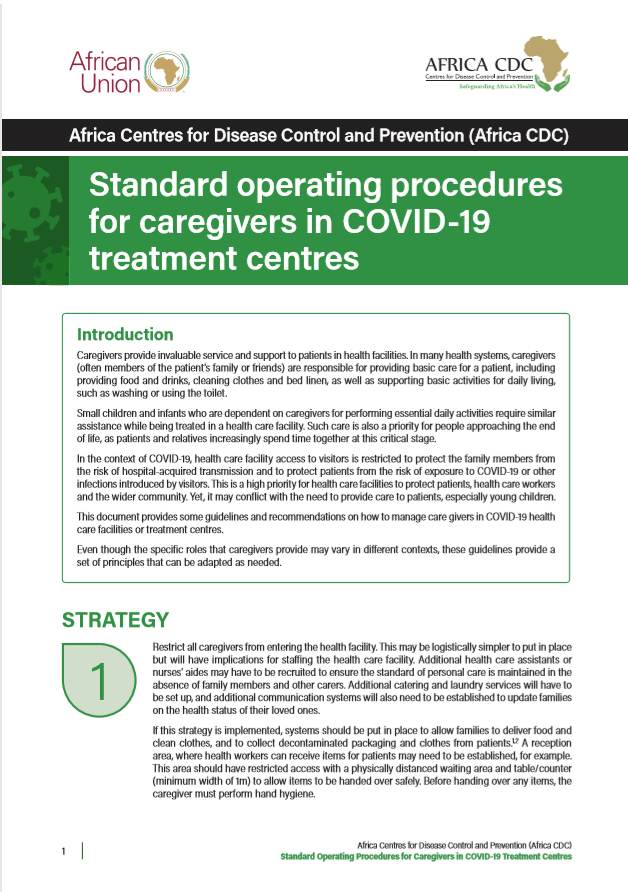Introduction: Caregivers provide invaluable service and support to patients in health facilities. In many health systems, caregivers (often members of the patient’s family or friends) are responsible for providing basic care for a patient, including providing food and drinks, cleaning clothes and bed linen, as well as supporting basic activities for daily living, such as washing or using the toilet. Small children and infants who are dependent on caregivers for performing essential daily activities require similar assistance while being treated in a health care facility. Such care is also a priority for people approaching the end of life, as patients and relatives increasingly spend time together at this critical stage. In the context of COVID-19, health care facility access to visitors is restricted to protect the family members from the risk of hospital-acquired transmission and to protect patients from the risk of exposure to COVID-19 or other infections introduced by visitors. This is a high priority for health care facilities to protect patients, health care workers and the wider community. Yet, it may conflict with the need to provide care to patients, especially young children. This document provides some guidelines and recommendations on how to manage care givers in COVID-19 health care facilities or treatment centres. Even though the specific roles that caregivers provide may vary in different contexts, these guidelines provide a set of principles that can be adapted as needed.
